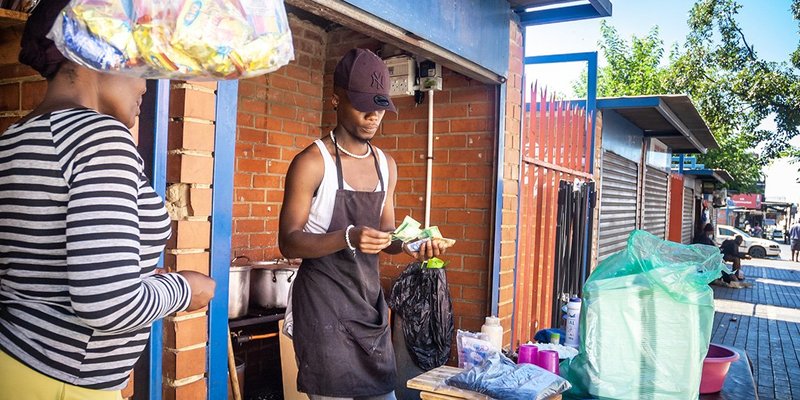South Africa's Informal Economy Runs on Cash
Drivers want to tap and go. This is bad for us as tips don’t always come when people use cards. People are on tight budgets, and a coin here or there is easier to give than swiping on a card. If there are no coins to give, I fear we will struggle.
Data from World Economics indicates around 30 percent of South Africa’s economy is informal. Additionally, around 16 percent of citizens aged over 15 do not have a bank account, and among those who do some 25 percent—over eight million people—are underbanked, meaning they lack convenient, ready access to banking facilities.
Beyond the informal economy are the many workers who depend on tips to augment their salaries, such as fuel station attendants who not only fuel customers’ cars but also clean their windshields and arrange payment. Among them, Lebogang Ramathoka notes improvements could be made to cashless systems—such as including an option to add a tip when paying by card—but ultimately hopes cash and cashless payments will coexist.
There has been about a 50 percent reduction in donations since the mall installed cashless ticket payments… We must accept that technology will change things, but I fear this cashless world will kill our income.
A sizable group of South African workers who rely on cash to earn a living are finding it harder than ever to make ends meet as cashless payments gain popularity.
Writing for Context—a media platform providing news and analysis that contextualises major issues in terms of how they affect ordinary people—Kim Harrisberg has explored South Africa’s informal economy and the impact of a decrease in cash usage. While some claim small businesses can benefit from the introduction of cashless payment, there are certainly those for whom the opposite is true. Buskers, street traders and fuel station attendants are among those saying their earnings are dropping as fewer people carry cash.
Thomas Nhassavele has busked next to a parking payment machine at a Johannesburg mall for more than a decade, exchanging his guitar performances for loose change. He says his takings have halved in the past couple of years since the mall introduced a cashless payment system.

